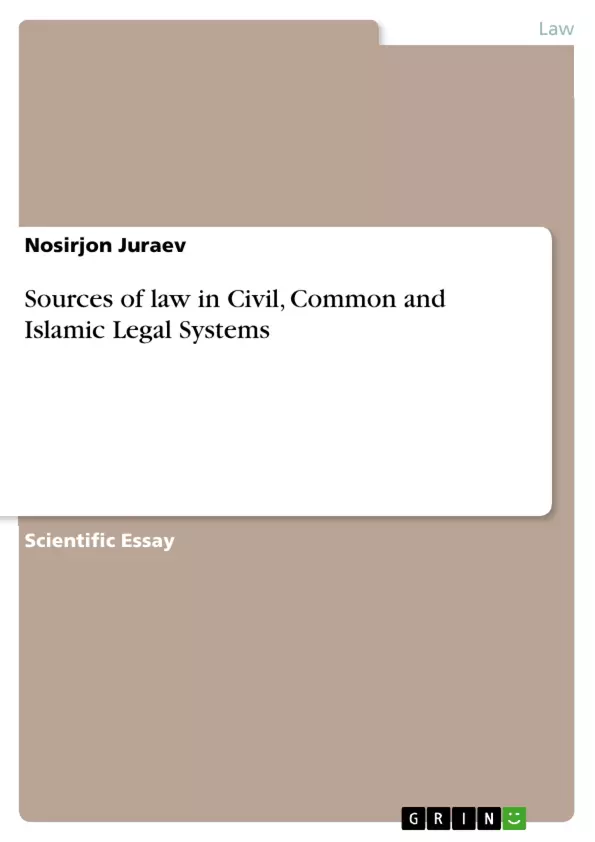¿Cuáles son las principales fuentes del derecho en los sistemas legales civil, común e islámico?
Este documento compara los sistemas legales civil, común e islámico, centrándose en sus fuentes de derecho. El derecho civil se basa principalmente en códigos, estatutos, legislación delegada y doctrinas, con el derecho internacional y el derecho europeo como fuentes suplementarias. El derecho común se basa en tratados, derecho de la UE, estatutos, legislación delegada, jurisprudencia, equidad y costumbres. El derecho islámico deriva de fuentes religiosas como el Corán, la Sunna, el consenso judicial y el razonamiento analógico.


